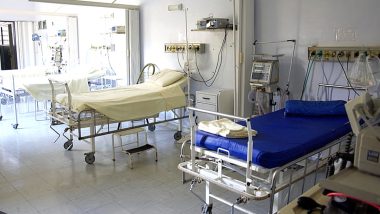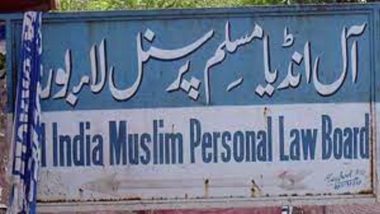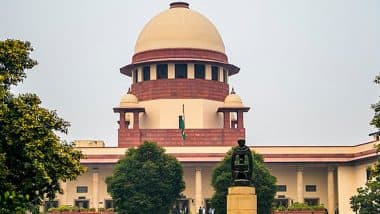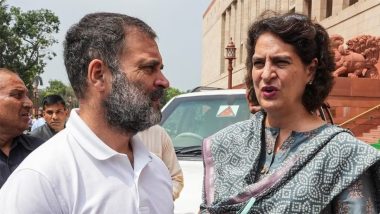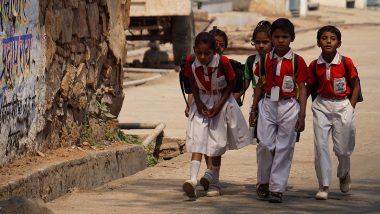New Delhi, Sep 21: Only four per cent patients were able to get a Covid-19 ICU bed through the routine process, while 78 per cent had to use connections and clout, a survey revealed on Monday.
The number of Covid cases in India has mounted to 54 lakh and the country has been recording on average over 90,000 cases daily for the last two weeks. Hospitals now are seeing more critical patients than they did in May-June this year. With the rise in critical cases, the availability of the Intensive Care Unit (ICU) beds has drastically reduced. India Has Highest Number of COVID-19 Recoveries in World, US on Second Position.
After receiving many complaints from citizens from across the country about their family friends or associates not being able to find an ICU bed at a government or private hospital, 'LocalCircles' decided to conduct a survey to get citizen's pulse on the issue and received over 17,000 responses from citizens located in over 211 districts of the country.
In the first question, LocalCircles asked citizens about the experiences of people in their social network in regard to getting a Covid-19 ICU bed. To ensure that the right feedback is sought, citizens were requested to make calls to their contacts in case they were unaware themselves about the detailed experience of their contact in getting an ICU bed.
In response, 55 per cent citizens said that they did not have any person in their network who needed a Covid ICU bed. These respondents were taken out of the sample to only analyse experiences of citizens who had someone in their network needing a Covid-19 bed.
When this sample was analysed, 38 per cent respondents said they had to use clout to secure an ICU bed while seven per cent said they had to follow up extensively to secure the ICU bed. 40 per cent said they had to use their connections, follow up extensively.
They also had to escalate via social media or complain to the government to secure the ICU bed. Seven per cent said they had to bribe (cash or kind) hospital or government officials to secure the ICU bed, while only four per cent said they got the ICU bed without any of the above. Another four per cent said they did not get an ICU bed at all.
In Delhi for instance, patients complained that the Delhi government's app, Delhi Corona, shows ICU beds available in some hospitals, however, when they call that hospital, they are told that the bed is not available.
The Delhi government also recently asked 33 big private hospitals in the state to reserve 80 per cent of their total ICU beds for the Covid-19 patients. However, whether that is actually implemented by the hospitals remains to be seen as an association of healthcare providers said that it would challenge the order in the high court because such a move would hamper the treatment of non Covid patients with critical ailments.
In the next question, citizens were asked -- given the ICU beds shortage for Covid-19, should it be made mandatory for all hospitals to list on their websites and the building entrances the real time ICU bed availability. A whopping 92 per cent citizens responded in its favour while only seven per cent voted against it.
According to many citizens, those with clout and connections are able to get the ICU beds even if they have mild symptoms while many common citizens, including the healthcare workers with severe symptoms are being denied an ICU bed or being granted the same much later. Several examples have been shared.
According to the people, the Ministry of Health and Family Welfare and the State Health Departments must issue the right SOPs to hospitals in making the ICU bed availability more transparent by displaying this information in real time (as it changes) on their website and building entrances so the only criteria for who gets an ICU bed is the patient's condition.
Also, given the sudden spurt in the number of Covid cases in India over the last two months, people feel it is imperative that states work towards increasing their capacity of ICU beds as the need for them will rise further in the coming weeks as India goes into the festive season in most parts of the country.
LocalCircles will submit a copy of this report to senior members of the Ministry of Health and Family Welfare and the chief secretaries of all states for their urgent consideration.
Over 17,000 responses were received across 211 districts of India. 65 per cent respondents were men while 35 per cent respondents were women. 52 per cent respondents were from tier 1 cities, 26 per cent from tier 2, and 22 per cent respondents were from tier 3, 4 and rural districts.
(The above story first appeared on LatestLY on Sep 21, 2020 01:31 PM IST. For more news and updates on politics, world, sports, entertainment and lifestyle, log on to our website latestly.com).



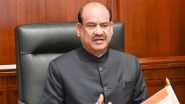


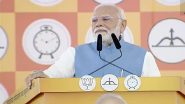






 Quickly
Quickly








